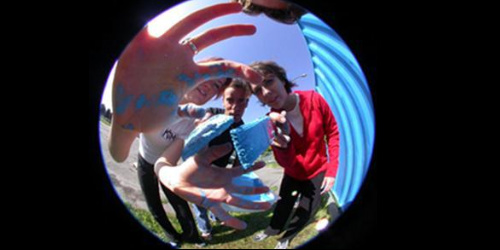
Learning in the Field. Image from UBC Learning Exchange UBC-Community Learning Initiative Annual Update 2010-2011.
Amanda Cheong, fourth-year Honours student in Sociology, UBC Faculty of Arts, believed in experiential learning before she came to the University. In her second year of study at UBC, she participated in a community-based research experience that marked a turning point in her academic career.
An initiative developed in partnership with the UBC-Community Learning Initiative, UBC faculty members, and community partner organizations, the Immigrant Vancouver Ethnographic Field School (IVEFS) is a
six-week collaboration led by Sociology Professor Jennifer Chun and Anthropology Professor Alexia Bloch. IVEFS offered Amanda an opportunity to apply her academic knowledge and learn from immigrant community issues.
Based out of Gordon Neighborhood House in Vancouver’s West End, Amanda initially learned theory on community development, immigration, transnationalism, and qualitative research methodology. She then carried out research, particularly evaluation surveys of programs and services offered at Gordon Neighborhood House. “What I was learning in the classroom gave me a theoretical framework, which allowed me to make sense of what I was seeing and doing in the field.”
While conducting research, Amanda met immigrant families from diverse backgrounds and built strong connections with them. Through this process, she became interested in immigrant parents, ethnic identity, and the language acquisition of their children. Her experience confirmed that “you have to be accountable to the population you immerse yourself in.”
Encouraged by her experience and supported by her continued working relationships with faculty members and the UBC-Community Learning Initiative, Amanda hopes to continue bringing about positive change through research. She has since decided to pursue graduate school and is preparing to lead a Student-Directed Seminar with a community service learning component in January 2012.
What would she tell fellow students who are considering a community-based experiential learning opportunity? “It’s a unique experience and you shouldn’t pass it up!”
